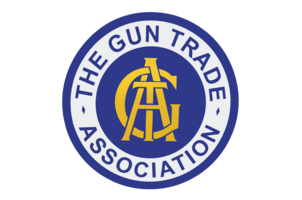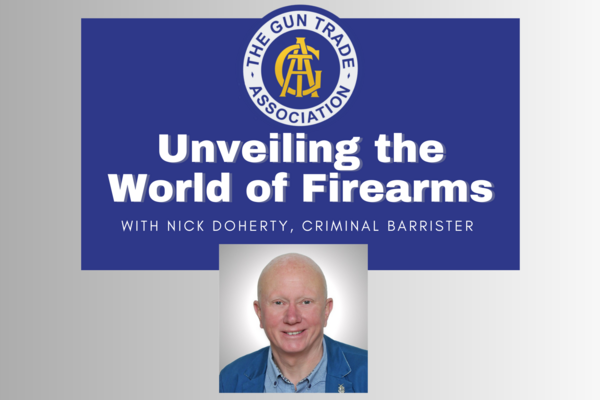In our captivating interview with Nick Doherty, we delve into the world of firearms law and the remarkable journey of a criminal barrister turned firearms specialist.
Nick Doherty is a criminal barrister and has practised at the criminal bar for 35 years, prosecuting and defending all types of cases. His particular interest is in firearms, whether involving criminal offences or firearms licensing matters. A large proportion of his practice now involves regulatory work, particularly in relation to firearms and explosives and health and safety work.
When did your interest in firearms begin? I went on a pistol shooting course in 1987 and got hooked. I got my FAC in 1988, my first gun was a Beretta 92. I didn’t have a shotgun certificate until about 2012.
Did you always intend to specialise in firearms law? No, originally, I was a criminal barrister, prosecuting and defending. I got instructed to represent one of the other customers at my gun-shop, the case (Stubbings 1989) is still the definition of ‘ammunition’ in English law. I did more firearms work as the years went on, and now don’t do much else.
Your most interesting case? Going to see a client on death row in Jamaica. After we saw him he wrote to my solicitor and said “Now I’ve met Mr. Doherty I know I’m going to be all right”. Luckily the Privy Council allowed his appeal.
What are the main challenges faced by RFDs in law? The most common problem in my experience and I only get asked when things have gone wrong, is failing to comply with the various rules and regulations regarding registers and notifying servants. It is sometimes difficult to give an answer! There are as many different questions as there are dealers. One of the most common are questions regarding the classification of firearms.
How should they mitigate risk? Follow this advice!
What lessons can be learned from your experience? How should RFDs stay on the straight and narrow? Complying with the rules is not necessarily a legal requirement. For example, Section 8 of the 1968 Act has not been changed. Any servant of the RFD is entitled to the same legal right to possess firearms etc. as the principle of the firm. However, most licensing departments will now try and argue this is not the case unless you have notified them as a servant. Whether someone is a servant is a question of fact, not of whether they have been notified to the police. Some RFDs might like to argue the toss, but it is pointless, just do what the police ask you to do. You might be correct legally, but why bother with the argument and risk your business?
So, there’s a need for training? It is important that your registers are not only completed accurately and in a timely fashion, but it helps if they are easy to understand. I am aware of RFDs who have been taken off the Register for not correctly recording items disposed of as scrap. There is a need for training regarding record keeping, but there is also a need to understand the police have something you want, and it is best to cooperate and do what they require. Being on top of your registers and the stock when you have an audit is very helpful.
Are you finding that you are dealing with more firearms licensing appeals recently? Yes, but this is because of the police reaction following the Plymouth shooting and the introduction of the Statutory Guidance in December 2021.
Can you tell me a little about your work for the CIC? I am one of 3 international lawyers for them. One English, one French and one Austrian. As I am the only one who understands the common law, I get to do most of the work. The International Council for Game and Wildlife Conservation, to give them their English title, support the sustainable use of wildlife and supports local communities across the world. They are recognised as an International Non-Governmental Organisation by the UN.
I know that you’re a keen shooter with a varied collection of nice guns, but I’m interested that you’re a biker too. Yes, I ride a Triumph Trophy back and forth from the airport, the parking is free. The bike gear will go in the panniers, and I strap my wheely case onto the back of the seat with bungies.
I have the purple Firearms Law Handbook, which you co-wrote with GTA partner Laura Saunsbury, on my desk and suggest that every RFD purchases a copy for themselves via Amazon. Can you tell me about it? Laura Saunsbury and I were asked to update a book entitled Gun Law in 2011. The previous book was written by a Lincolnshire solicitor who had passed away after 6 editions. It was a book aimed at the shooter and the police officer, as much as the lawyer. We changed the title but have tried to continue the concept. It is hard work writing a textbook, you always get something wrong, and it is very badly paid. The second edition came out in 2019 and we will have to bring out a new edition in the next year or two to deal with the Statutory Guidance and increased attempts by licensing departments to have their evidence declared subject to PII and therefore not disclosed to the appellant.
Laura is a trade member of the GTA. We represent many dealers, large and small who are under increasing scrutiny from the police. For dealers’ advice at an early stage can be very important. Explaining what you are doing and how it conforms to the legislation is important.
Our conversation with Nick has provided a captivating glimpse into the intricate world of firearms law and the challenges faced by practitioners. With his wealth of experience and expertise, his insights have shed light on the evolving landscape of firearms licensing and the need for ongoing training to ensure adherence to regulations.
Thank you to Nick for his time and for his valuable contributions to our understanding of firearms law.




